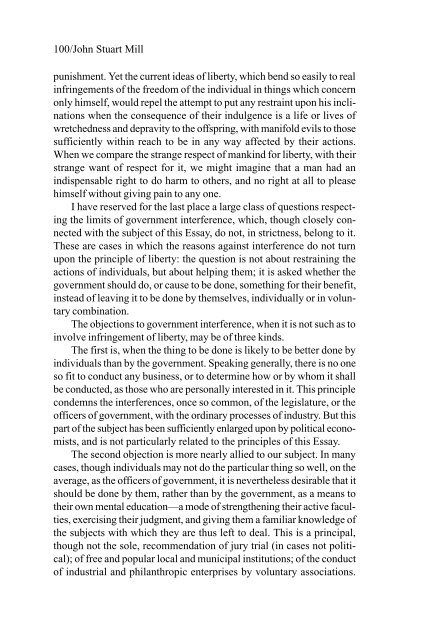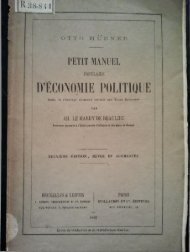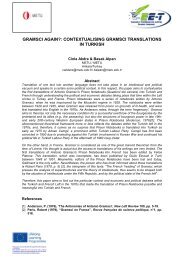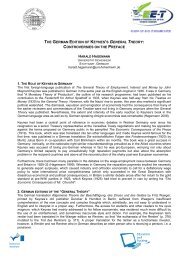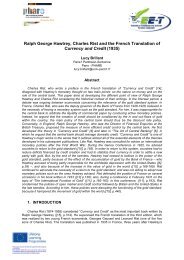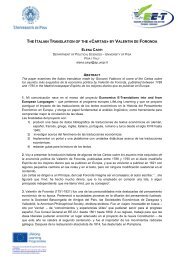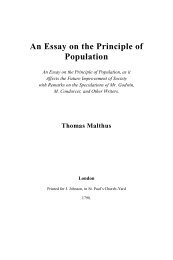On Liberty John Stuart Mill Batoche Books
On Liberty John Stuart Mill Batoche Books
On Liberty John Stuart Mill Batoche Books
You also want an ePaper? Increase the reach of your titles
YUMPU automatically turns print PDFs into web optimized ePapers that Google loves.
100/<strong>John</strong> <strong>Stuart</strong> <strong>Mill</strong>punishment. Yet the current ideas of liberty, which bend so easily to realinfringements of the freedom of the individual in things which concernonly himself, would repel the attempt to put any restraint upon his inclinationswhen the consequence of their indulgence is a life or lives ofwretchedness and depravity to the offspring, with manifold evils to thosesufficiently within reach to be in any way affected by their actions.When we compare the strange respect of mankind for liberty, with theirstrange want of respect for it, we might imagine that a man had anindispensable right to do harm to others, and no right at all to pleasehimself without giving pain to any one.I have reserved for the last place a large class of questions respectingthe limits of government interference, which, though closely connectedwith the subject of this Essay, do not, in strictness, belong to it.These are cases in which the reasons against interference do not turnupon the principle of liberty: the question is not about restraining theactions of individuals, but about helping them; it is asked whether thegovernment should do, or cause to be done, something for their benefit,instead of leaving it to be done by themselves, individually or in voluntarycombination.The objections to government interference, when it is not such as toinvolve infringement of liberty, may be of three kinds.The first is, when the thing to be done is likely to be better done byindividuals than by the government. Speaking generally, there is no oneso fit to conduct any business, or to determine how or by whom it shallbe conducted, as those who are personally interested in it. This principlecondemns the interferences, once so common, of the legislature, or theofficers of government, with the ordinary processes of industry. But thispart of the subject has been sufficiently enlarged upon by political economists,and is not particularly related to the principles of this Essay.The second objection is more nearly allied to our subject. In manycases, though individuals may not do the particular thing so well, on theaverage, as the officers of government, it is nevertheless desirable that itshould be done by them, rather than by the government, as a means totheir own mental education—a mode of strengthening their active faculties,exercising their judgment, and giving them a familiar knowledge ofthe subjects with which they are thus left to deal. This is a principal,though not the sole, recommendation of jury trial (in cases not political);of free and popular local and municipal institutions; of the conductof industrial and philanthropic enterprises by voluntary associations.


